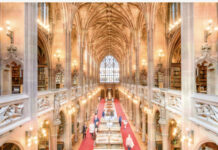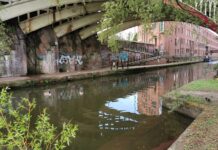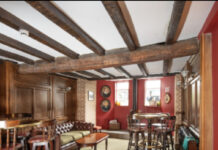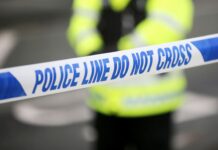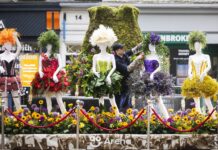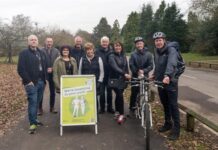Two hundred years ago today, eighteen innocent people were killed and hundreds injured at Peter’s Fields on the then outskirts of the centre of Manchester hen cavalry charged into a crowd of 60,000–80,000 that had gathered to demand the reform of parliamentary representation.
The event became known as Peterloo in homage to the battle won just four years previously in Flanders against Napoleon.
This is the story of what happened that day and the events that led up to it
The spirit of Radicalism had come to Manchester in the 1790’s inspired by the writings of Thomas Paine and the French Revolution and where once discussion had been confined to London coffee houses, now it was being taken up by the labouring classes. The first Manchester Constitutional Societys is set up, led by Thomas Walker, and they hold a dinner to celebrate the second anniversary of the French Revolution. Walker would write to Paine congratulating him on the publication of the second part of his rights of man and The Manchester Herald begins publication fro Market Place in March 1792 vowing to concentrate on serious issues.
The French wars put a dampener on radicalism, Walker’s House house is attacked by a patriotic mob and the offices of the Herald suffer the same fate. The mob returned four times, attempting to gain entry to Walker’s House, now the site of Parsonage gardens, and he fires musket shots to disperse them with the militia unwilling to defend his property. Two years later Walker is charged with treason, but acquitted after the government’s chief witness turns up drunk. But with events across the channel more pressing the crackdown continues. Death sentences for illegal vows and draconian measures for publishing seditious content are amongst the government’s measures.
Manchester was growing but the system of national government had not changed for hundreds of years, based on the old system of land and country seats. Landowners influenced voting and could more or less decide who would be the MP. The industrial towns of the North had no representation and most people’s connection with the political system was tentative at most. With Napoleon’s defeated and the New European order imposed, demilitarisation in Britain led to a slump and the new radical movement began to appear. The North for the first time became a centre for the new movement with working people.
The new centres for political discussion were setting up across Manchester and South Lancashire, inspired in part by the writings of William Cobbett, would also influence using a loophole in the press regulations addressing journeymen telling them of the taxes that are collected for the military, its servants and pensions-whilst the only true remedy he felt was reform of parliament.his writings were read throughout South Lancashire.
In 1817 a mass rally left Manchester heading for Westminster. The Napoleonic wars had ended and a brief boom in the textile industry had been replaced by periods of economic depression where weavers who could have expected to earn fifteen shillings a week in 1803, saw their wages cut to five or less. Whilst wages were being cut, prices were rising partly as a result of the Corn Laws, imposing a tariff on foreign grain in an effort to protect English grain producers.
Those that marched to Parliament that year had made little or no arrangements beyond taking a blanket to sleep on, from which they were christened, the Blanketeers. Instead they would rely on the hospitality of the road, a fraternal community, almost a throwback to the Middle Ages. They got no further than Macclesfield, the majority no further than the Mersey at Stockport, where some were turned back, as the government took fright others were either allowed to pass or waded across the river only to be arrested and herded into a yard in the marketplace. Scuffles saw the death of an innocent bystander who was sabred across the head by a mounted soldier and died in agony after several days.
Stockport would not forget them two years later as Henry Hunt addressed the crowds on his way to speak at St Peter’s fields following a letter from Joseph Johnson, secretary of the Manchester Patriotic Union.
“Nothing but ruin and starvation stare one in the face in the streets of Manchester and the surrounding towns”, he wrote “the state of this district is truly dreadful, and I believe nothing but the greatest exertions can prevent an insurrection. Oh, that you in London were prepared for it.”
Hunt’s name is associated with Manchester nowadays but he was a Wiltshire lad, a farmer who taken under the wing of John Horne Tooke began to sympathise with those who wanted reform of the political system. He had stood unsuccessfully as a Parliamentary candidate in Bristol the previous year and had spoke at Spa Fields in London in 1816.
An officer in the Stockport Yeomanry and lawyer,John Lloyd was attacked by a mob as he tried to break up a rally protesting at the arrest of three sentenced for their part in the 1817 disturbances now accused of breaking their bail bonds to hear Hunt speak. In revenge he indicted two of the speakers, Sir Charles Worlsey and Revd Harrison. Special constable William Birch arrested Harrison in London and Worsely at his own house in Staffordshire and brought them back to Stockport. Back into the town, he was confronted by three men. When he asked them what they wanted, two stepped aside, the third drew a pistol and shot him in the chest.
He survived, his breastbone taking the impact of the bullet and the reward for information saw one of the confronters a Mr Pearson to accuse a Jacob McGuinness, a silk weaver from Edgerley.
Stockport workers would march into Manchester in August 1819. Johnson’s letter had been intercepted by government spies and believed its contents were a means to an insurrection. The mass public meeting had been planned for 2 August but was delayed for week after the local magistrates, under the leadership of William Hulton, had been advised by the Home Secretary, Henry Hobhouse, that “the election of a Member of Parliament without the King’s writ” was a serious misdemeanour, and had declared the assembly illegal.
The Manchester Observer reported that the intention of the meeting was “to take into consideration the most speedy and effectual mode of obtaining Radical reform in the Common House of Parliament” and “to consider the propriety of the ‘Unrepresented Inhabitants of Manchester’ electing a person to represent them in Parliament”
Sixty thousand turned up, marching from all over South Lancashire with their banners and flags, many women and children amongst them on a hot summer’s day, with a cloudless blue sky magistrates had breakfasted at the Star Inn on Deansgate to decide on a plan of action and, concerned that it would end in a riot, or even a rebellion, had arranged for a substantial military presence with regular troops and the Yeomanry who were variously described as “younger members of the Tory party in arms”, and as “hot-headed young men, who had volunteered into that service from their intense hatred of Radicalism”
It was to be a recipe for disaster Hunt arrived at the hustings around 1.00pm and joined John Knight, a cotton manufacturer and reformer, Joseph Johnson, John Thacker Saxton, managing editor of the Manchester Observer, the publisher Richard Carlile and George Swift, reformer and shoemaker. The chairman of the magistrates William Hulton was watching from the house on the edge of St Peter’s Field. What happened next will always be a matter of conjecture but what we do know is that he issued an arrest warrant for Henry Hunt, Joseph Johnson, John Knight, and James Moorhouse. Two notes to this effect were sent to the commanding officer of the Manchester and Salford Yeomanry and the overall military commander in Manchester. The former immediately drew their swords and galloped towards St Peter’s Field. A woman was knocked down in Cooper Street, her two year old child, William Fildes was thrown from her arms and became the fatality of the day.
The authorities claimed that as Hunt began to speak, the riot act was read but nobody ever claimed to have heard it. Instead what followed was a frenzy of hacking and slashing as the cavalry, whom many said had been drinking, got stuck in the crowd trying to reach the hustings. According to John Tyas of The Times who was also on the hustings, the yeomanry progress through the crowd had provoked a hail of bricks and stones, and caused them to lose “all command of temper”. Seeing this, Hulton perceived the unfolding events as an assault on the yeomanry, and ordered the Hussars into the field to disperse the crowd with the words: “Good God, Sir, don’t you see they are attacking the Yeomanry; disperse the meeting!”
Ten minutes later the crowd had dispersed. Eleven were dead, hundreds injured in what became a mass panic as they desperately tried to leave the field pursued by soldiers and yeomanry. Mrs Linnaeus Banks would write of soldiers hardened in the battlefield and Yeomanry fired with drink let loose by barbarians on a close wedged mass of unarmed people.
“the defenseless people were sabred, stabbed, shot, pressed down and trampled by the horse and infantry and in less than ten minutes the actual field was cleared of all but mounds of dead and dying, severed limbs, torn garments, pools of blood, pawing steeds and panting heroes, men and maidens, mothers and babies, butchered by their countrymen for no crime”
Four years after the battlefield of Waterloo, the press quickly would christen this Peterloo. it sent a shrill of horror throughout the country. Hunt from his prison cell would write of this “infamous, cruel, cowardly, unprovoked and premeditated assassinations, slaughterings and mass murder of men women and children at Manchester.”
He would serve two and a half years in jail, not as a result of Peterloo but for seditious remarks made at an earlier meeting. He would become an MP in 1830 for Preston but was defeated two years later. It was said he did not make any conspicuous mark in the House .
After his death in 1835 a monument would be erected in Every Street on Ancoats, its unveiling watched by five teen thousand chartists to perpetuate his memory and those who died for the cause of reform. Ironically it would be pulled down before the end of the nineteenth century. At around the same time one of the last people alive at St Peter’s Field would give an account of that fateful day
Mr ET Craig was fiveteen at the time and went partly out of curiosity. He described how the police and Special Constables formed a double line up around the platform apparently with a view to protect the speakers. Henry Hunt had said a few preliminary words before the yeomanry were seen advancing in the dense crowd. The people turned around and with surprise cheered, only when they saw the yeomanry slashing left and right with their sabres did panic spread with many fleeing to the Deansgate end. He described seeing dead and wounded men and women, being carried from the field. Soldiers pursued the crowds into side streets even attacking people on their own doorsteps, some jumping into cellars, others crushed by others seeking to escape.
“Yes”, he said “there was no doubt they were drunk, they even attacked the police, it was well known that they had been treated to large quantities of brandy while awaiting their orders.”
For Mr Craig, it was a turning point, converting the town of Manchester from Toryism to Liberalism. For the cause of reform across the country, it would unite all the classes behind the cause and begin the events that would eventually lead to most of us being able to participate in the political process.


